In order for domestic press to compete equally, it is not only necessary to adjust Decree 38 but more importantly, it is necessary to soon amend the Advertising Law.
Decree 38 should be temporarily suspended and reviewed.
According to lawyer Nguyen Van Hau, Chairman of the Vietnam Lawyers Commercial Arbitration Center, the provisions of Decree 38 as well as the Advertising Law have many shortcomings and are unrealistic, leading to unfair treatment between two pairs of subjects: domestic press - cross-border media channels (Google, YouTube...) and advertising providers - viewers.
For the first pair of subjects, the market is fiercely competitive between traditional advertising and advertising through social networking sites. However, Decree 38 only applies to domestic press agencies, "tightening" many regulations, limiting both content and duration, while cross-border advertising platforms, because they are headquartered abroad, are not subject to these constraints.
On the other hand, many issues related to the management and tax collection of Facebook, Google... are still not satisfactory. Creating conditions for these platforms to operate more smoothly than traditional press channels, according to Lawyer Hau, is not only an act of "grabbing the hair", making it difficult for "our troops" but also making it more difficult for state agencies to manage new types of advertising.
Second, regulations such as not being able to insert advertisements into content, not displaying advertisements for more than 1.5 seconds are contrary to international practice. Enterprises have the right to advertise legitimate content that does not violate the law or is not untrue. The press has the right to insert advertisements into content according to the needs and target readers. Readers have the right to click on the advertisement link, continue reading the article or exit if it does not meet their needs.
Nowadays, businesses are also very clever in communicating their images and brands through stories, cartoon channels, and music videos, which are very popular with viewers, especially young people. The press is a reputable information channel, and many readers also want to use such channels to find quality products. Punishing these acts is not respecting the right of businesses to promote their images and the right of readers to access advertising information.
“The Advertising Law has been issued for nearly 10 years, and has many inappropriate and outdated regulations that are no longer suitable for practice and need to be reviewed and amended. In the process, the guiding decrees under the law should be reduced to avoid creating more barriers and making it difficult for all relevant parties. The Ministry of Culture, Sports and Tourism should recommend that the Government allow a temporary suspension of Decree 38 to review and reassess its feasibility. Most importantly, it is necessary to publicly solicit opinions from those directly affected, such as media agencies, newspapers, businesses, people, and criticism from the Fatherland Front , etc., so that the law is more feasible and closer to reality,” Lawyer Hau proposed.
Sharing this view, according to Mr. Le Quoc Vinh, Chairman of Le Bros Media Company, the immediate thing to do is to consider postponing the implementation of the inappropriate regulations in Decree 38. “Most of the electronic newspapers in Vietnam are free, the percentage of those with fees is insignificant and readers benefit. They accept advertising to read for free and have the right to proactively choose newspapers with few advertisements, or newspapers that still advertise a lot but have quality, unique content, and the fastest updates... In other words, the management agency does not need to intervene for the reason of protecting readers' rights, because readers are completely proactive in choosing,” Mr. Vinh shared.
Eliminate loopholes in the law
According to the Ministry of Culture, Sports and Tourism, in 2022 this agency will summarize 10 years of implementing the Advertising Law, and at the same time review and amend the provisions in the law to suit the reality. However, many opinions say that amending the Advertising Law should be studied and proposed sooner, because the roadmap for building, amending and supplementing a law takes a lot of time.
HTV Television Station representative said that many times there have been documents requesting amendments to the Advertising Law, emphasizing the removal of regulations, allowing advertisements to be inserted into news and article content. In reality, advertising content cannot be run in all programs, especially news and political programs, but only focuses on a few "hot" entertainment programs. If the station abuses too many advertisements, viewers can easily change channels, choose other programs or watch on other platforms. Therefore, it should be assigned to the editor-in-chief, calculating based on the actual needs of the market to decide the duration and location of advertising, as long as the content does not violate the law.
Agreeing, the representative of Thanh Nien Newspaper also said that, along with the shift in internet user habits from desktop computers to mobile phones (smartphones), press agencies are forced to change their advertising direction accordingly. With the characteristics of smartphone screens being quite small, not suitable for accessing advertising in fixed areas, press agencies must mix advertising with content to increase revenue, especially in the context of financial autonomy. Therefore, it is necessary to allow information pages and electronic newspapers to mix advertising with content but not affect users, the community and society. To separate advertising and content, press agencies will proactively design so that users can clearly distinguish.
Must harmonize the interests of newspapers - readers - businessesPhoto: Ngoc Thang Regarding Decree 38/ND-CP, Thanh Nien had an interview with Mr. Ho Quang Loi (photo), Permanent Vice President of the Vietnam Journalists Association . Many press agencies and experts believe that if the penalty regulations under Decree 38 are applied, it will stifle online newspaper advertising activities. What is the Journalists Association’s view on this issue, sir? In the past few days, the Journalists Association has received many comments from press agencies, even members of the Journalists Association, regarding Decree 38. The Journalists Association has re-examined the decree and found several problems: First, the press is facing great opportunities but also many formidable challenges, especially the source of revenue to ensure the operation of the editorial office and the lives of staff and reporters. The task of journalism is also heavier, printed newspapers are declining, electronic newspapers have not been able to sell content to generate revenue. Currently, only 2 newspapers charge fees, but the revenue is very small compared to the effort spent to maintain operations. Most of Vietnam's e-newspapers today, as well as print newspapers with quite strong e-newspapers such as Thanh Nien , Tuoi Tre, Tien Phong, Lao Dong ... mainly derive revenue from advertising, not from selling content. Through that, we can see that advertising revenue for e-newspapers is extremely important. The press currently only occupies a very small piece of the online advertising market, only about 20%, the remaining 80% falls on cross-border platforms and social networking sites. The state's fee and tax collection for these platforms still has many difficulties and inadequacies. The market share for e-newspapers is still too small, while the regulations stated in Decree 38 are causing certain difficulties for the revenue of press agencies. Editorial offices all expressed concern if the provisions in this decree are implemented. The Journalists Association believes that the controversial regulations in Decree 38 need to be thoroughly discussed among relevant ministries and agencies and recommendations made to competent authorities for reasonable adjustments in terms of time and implementation. According to you, how should the Advertising Law be reviewed and amended to facilitate press and advertising activities in general? The Law on Advertising was issued in 2012, a long time ago, the decrees implementing the law such as Decree 158/2013, up to now Decree 38 are all based on the old regulations in the Law on Advertising. Meanwhile, the life of the press and media is very different now. Therefore, it is necessary to review all the legal regulations related to press activities, including penalties for violations in electronic newspapers. So how to do it? The most basic thing in my opinion is to amend the provisions of the Advertising Law, to issue legal regulations related to press activities, directly the regulations on penalties for violations of advertising on electronic newspapers, ensuring the harmony of interests of 3 important subjects: Press agencies need to be guaranteed legal revenue sources, advertising businesses need to be guaranteed the need to promote products and brands, because if they are not allowed to advertise in the press, they will run to cross-border platforms. In other words, it is necessary to ensure a close companionship between the press and businesses in a win-win relationship. Especially the interests of readers and society. |
Source: https://thanhnien.vn/nghi-dinh-quang-cao-lam-kho-bao-chi-som-sua-luat-quang-cao-loi-thoi-1851074254.htm


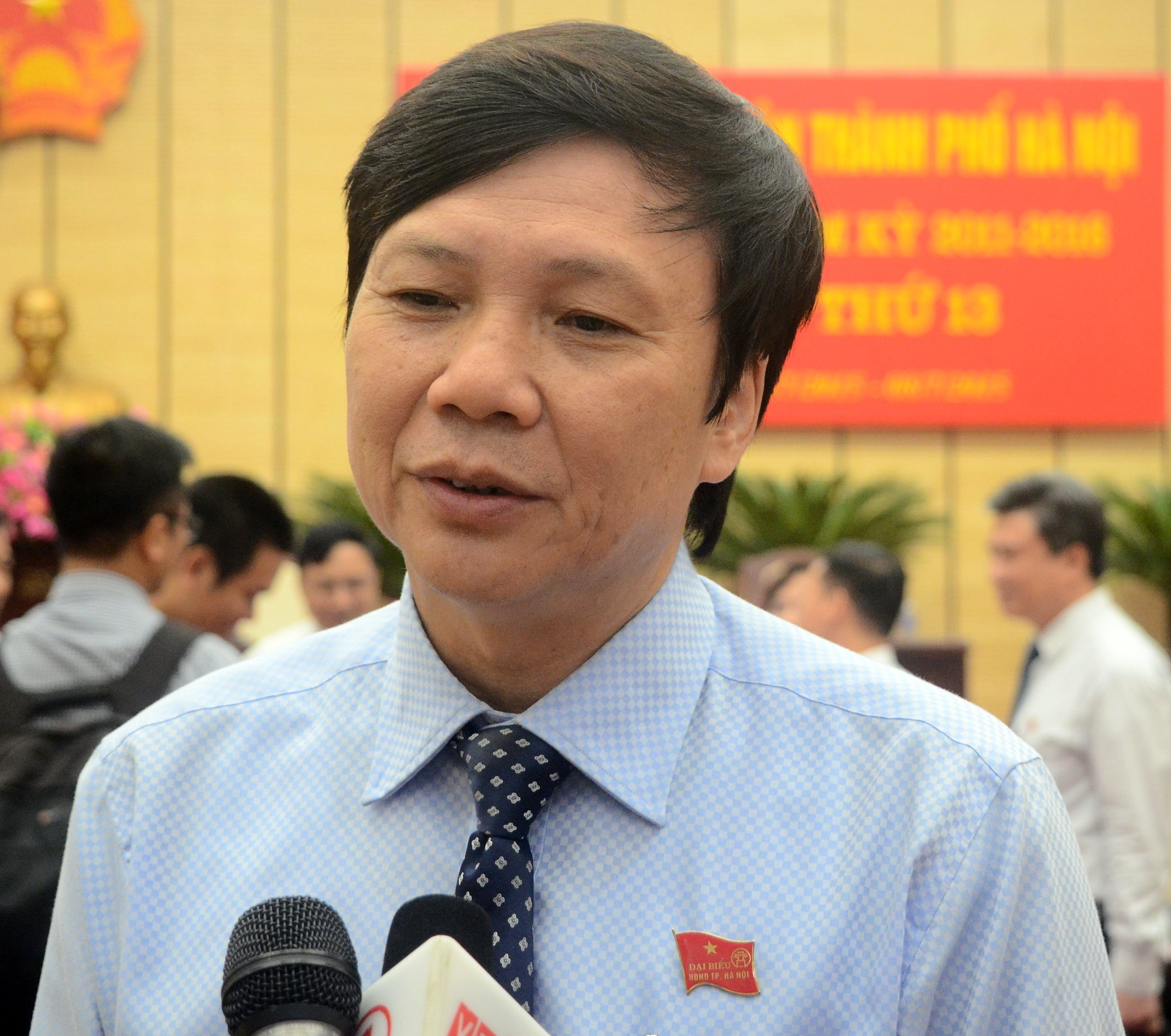



![[Photo] Solemn opening of the 1st Government Party Congress](https://vphoto.vietnam.vn/thumb/1200x675/vietnam/resource/IMAGE/2025/10/13/1760337945186_ndo_br_img-0787-jpg.webp)




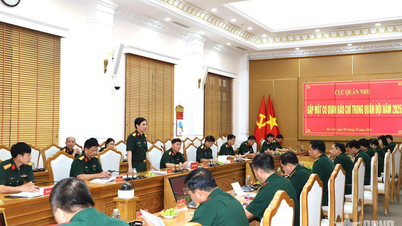



























![[Photo] General Secretary To Lam attends the opening of the 1st Government Party Congress](https://vphoto.vietnam.vn/thumb/1200x675/vietnam/resource/IMAGE/2025/10/13/1760321055249_ndo_br_cover-9284-jpg.webp)




























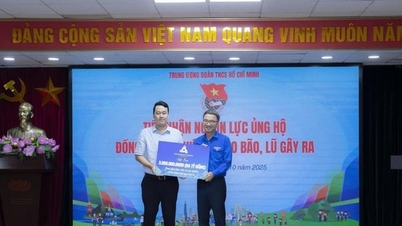

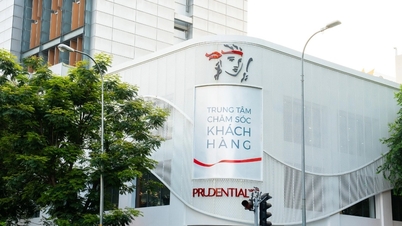














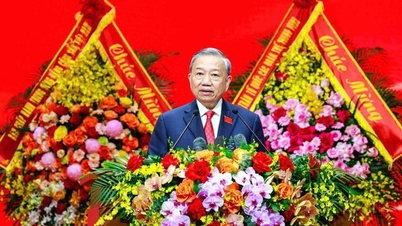

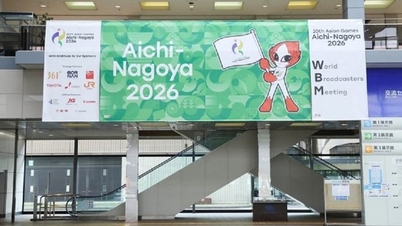


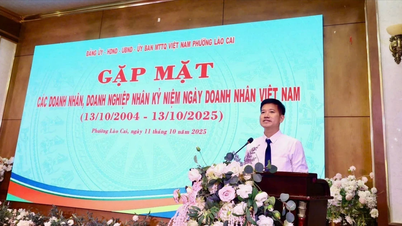
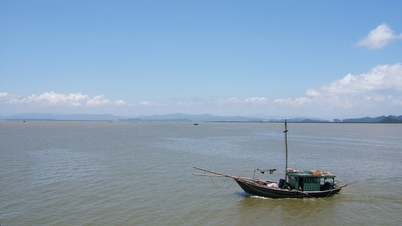

















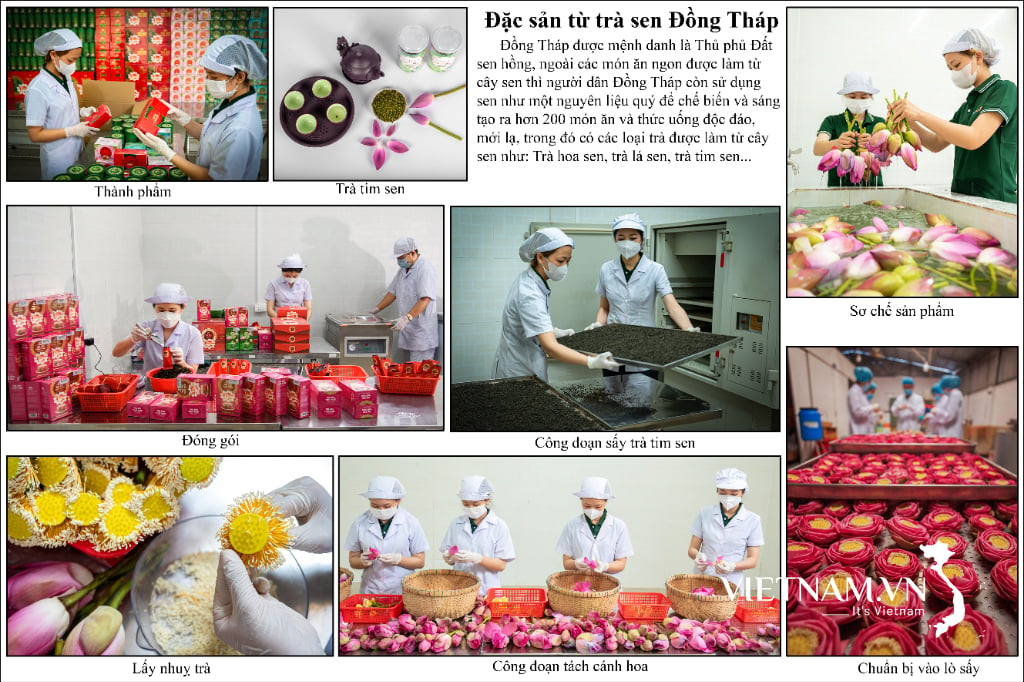


Comment (0)